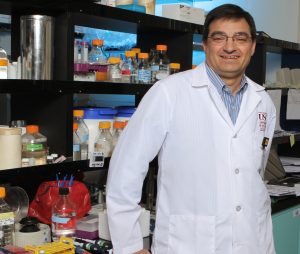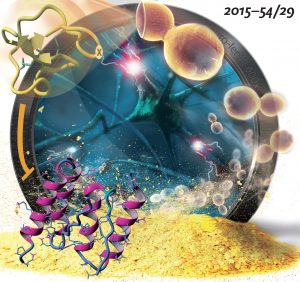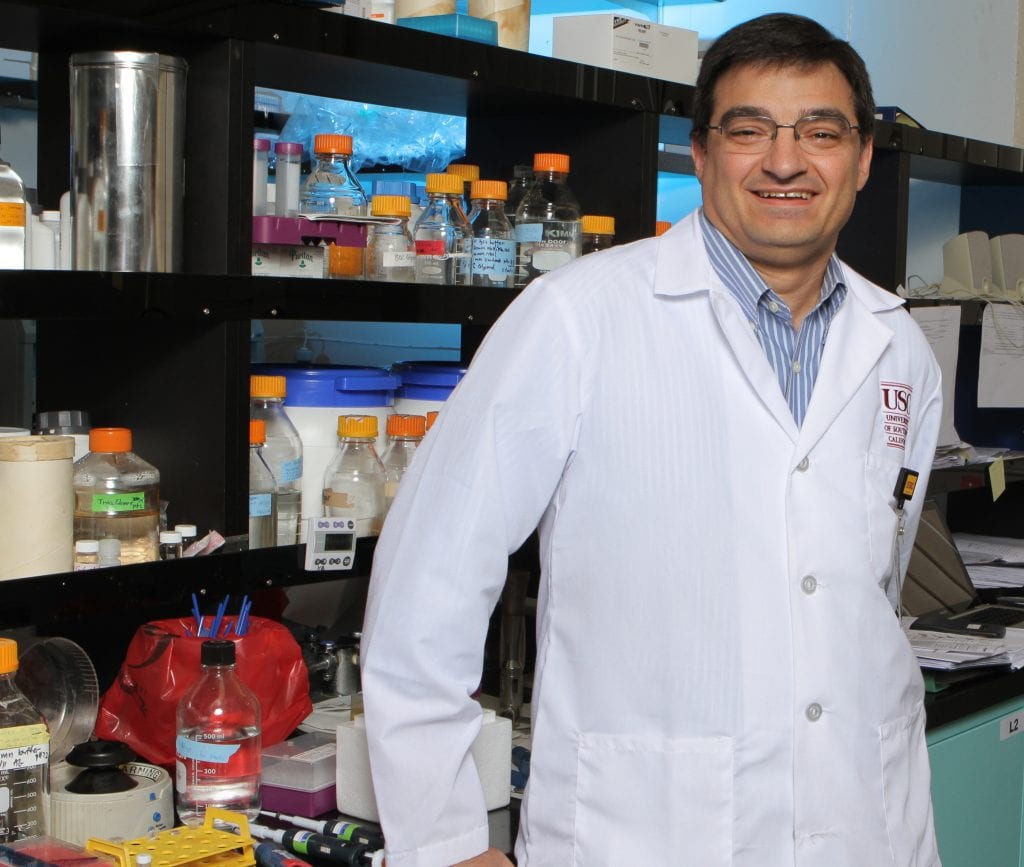Associate Professor Julio Camarero is making big strides in the ways we improve human health with his innovative work on the molecular level.

Camarero received a 4-year, $1.3 million RO1 grant from the National Institutes of Health for his project entitled, “Screening and Selection of Specific Protein-Protein Antagonists Using Ultrastable Microprotein Scaffolds.”
The research funded by this grant specifically focuses on the screening and selection of a novel class of protein-based therapeutics, also known as cyclotides.
“We will employ both genetically- and chemically-encoded cyclotide-based libraries to screen intracellular and extracellular protein-protein interactions using high throughput screening methods,” Camarero explains about the work this grant will fund.
Previously, Camarero has worked to evaluate millions of compounds and to identify those with the best potential to bind and inhibit targets. The process has many applications since it allows for broad-range screening and altering of their structures to generate novel binding activities to better target proteins.
The next phase of his research has the potential to be far-reaching, and could change the ways we are able to treat cancer.

“It is anticipated that these combined approaches will have profound implications for human health, and the way protein-based therapeutics can be used in the future to target specific extra- and intracellular protein-protein interactions involved in the development of cancer,” says Camarero.
Camarero has published over 90 articles on his work in peer-reviewed journals. Most recently, his work on cyclotides was featured as the cover story of the July 13, 2015 international edition of Angewandte Chemie. The cover illustration was created with Isaac Mora, a graphic artist at the School of Pharmacy.
Camarero has previously received grant funding from the National Institutes of Health, Department of Defense and Bristol-Myers Squibb.


